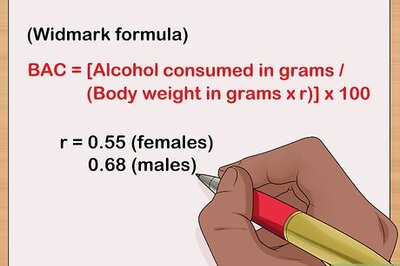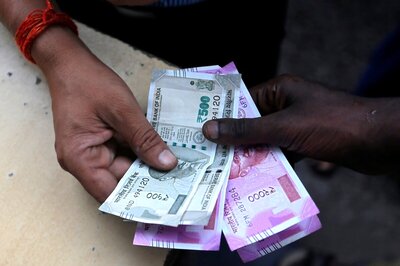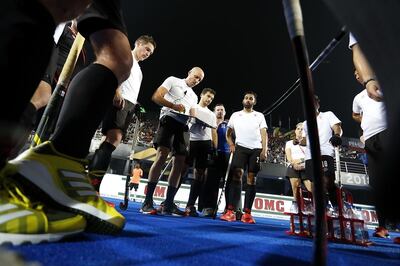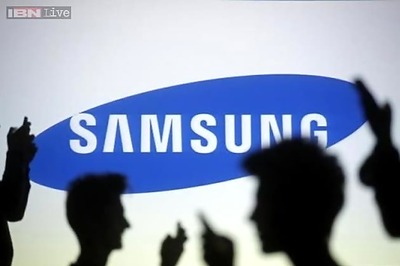
views
In his three-terms as Delhi Chief Minister, the first of which was quite short-lived for 49 days, AAP national convenor Arvind Kejriwal has worked with three Lieutenant Governors – Najeeb Jung, Anil Baijal and now VK Saxena. With two different parties in power at the Centre and in the national capital, each of these tenures has been punctuated by turf wars, the latest flashpoint being the liquor policy case against Kejriwal’s second-in-command Manish Sisodia.
Sisodia is among 15 people and entities named in an FIR registered by the CBI in connection with alleged irregularities in the implementation of the Delhi government’s Excise Policy 2021-22. The Delhi excise policy scheme came under the scanner after L-G VK Saxena last month recommended a CBI probe into alleged irregularities in its implementation.
Sisodia and others have been accused of “deliberate and gross procedural lapses” to provide post-tender “undue benefits to liquor licencees” through the excise policy. It is also alleged that undue financial favours were extended to liquor licencees after the tenders were awarded, causing loss to the exchequer.
The AAP has accused Saxena of doing the BJP-led central government’s bidding and party MLA Durgesh Pathak even alleged that Saxena had pressured his employees to exchange demonetised notes worth Rs 1,400 crore in 2016 when he was Khadi and Village Industries Commission chairman.
As political mudslinging continues in the national capital, News18 examines Arvind Kejriwal government’s tense relationship with the current and previous Lieutenant Governors.
Najeeb Jung
Najeeb Jung’s three-and-a-half-year tenure as Delhi L-G from July 2013 to December 2016 was marked by frequent run-ins with the Arvind Kejriwal government, frequently reaching the doors of the judiciary.
He often overruled decisions of the Kejriwal government and the Supreme Court had even observed in one of the hearings that an elected government should have some powers. Jung had invited criticism that his run-ins with the AAP government often brought governance in the capital to a standstill. He tendered his resignation in a surprise move on December 22, 2016, triggering speculation whether he was asked to quit.
- July 9, 2013: Najeeb Jung is appointed Delhi Lieutenant Governor
- December 28, 2013: AAP’s Arvind Kejriwal becomes Delhi Chief Minister
- February 3, 2014: Delhi Cabinet clears draft of Jan Lokpal Bill
- February 10, 2014: Jung sends it to Law Ministry which says Centre’s nod is mandatory to introduce Jan Lokpal Bill
- February 14, 2014: Arvind Kejriwal resigns after 49 days in power
- February 17, 2014: Delhi Assembly is kept in suspended animation, President’s Rule is imposed
- February 14, 2015: Arvind Kejriwal is Delhi Chief Minister again as AAP sweeps Assembly elections
- April 2015: Jung says he is not obliged to send files to CM in response to Kejriwal’s order to route files related to police, public order and land through him
- April 29, 2015: Kejriwal tells officials not to bother the L-G with all files
- May 16, 2015: Kejriwal accuses IAS officer Shakuntala Gamlin of lobbying for power companies
- May 20, 2015: Jung annuls all bureaucratic postings by Delhi government, says the power to appoint and transfer rests with him
- June 2, 2015: Five officers of Bihar Police join Delhi government’s Anti-Corruption Branch (ACB). Jung rejects it, says he is the ACB boss
- June 8, 2015: Jung names Joint Commissioner of Delhi Police MK Meena as new chief of ACB. Kejriwal cries foul
- June 9, 2015: Delhi government replaces Home Secretary Dharam Pal. L-G vetoes order
- July 20-21, 2015: Delhi government appoints Swati Maliwal as Delhi Commission for Women (DCW) chairperson. Jung asks why his approval was not sought
- August, 2015: Arvind Kejriwal hikes circle rates in Delhi for agricultural land. Jung objects
- August 11, 2015: Delhi government forms Commission of Inquiry to probe CNG fitness scam. L-G objects again
- December 2015: AAP government sets up Inquiry Commission to probe Delhi and District Cricket Association. Jung questions its validity
- December 15, 2015: CBI raids Chief Minister’s Office. Kejriwal blames Prime Minister Narendra Modi and L-G Jung
- December 31, 2015: IAS and DANICS officers go on mass leave day before flagship odd-even scheme is launched to curb air pollution
- January 1, 2016: Kejriwal blames L-G, Centre for strike. Odd-even scheme becomes a success
- March 2016: AAP government appoints former Chief Income Tax commissioner Krishna Saini as chairperson of Delhi Electricity Regulatory Commission
- June 1, 2016: ACB probes Delhi government’s app-based Premium Bus Service
- June 20, 2016: ACB files FIR against Kejriwal and former CM Sheila Dikshit in water tanker scam after Jung’s nod
- August 4, 2016: Delhi High Court gives primacy to the Lieutenant Governor in Delhi’s administration. AAP government moves Supreme Court
- August 30, 2016: Jung fires Delhi Health Secretary and PWD Secretary. Kejriwal says BJP-led central government “hell bent on destroying Delhi through Jung”
- August 30, 2016: Jung sets up panel to probe more than 400 files related to decisions taken by Delhi government. Kejriwal terms move illegal
- September 16, 2016: After chikungunya outbreak, Jung asks Deputy Chief Minister Manish Sisodia to return from Finland
- September 17, 2016: Jung refuses to meet AAP ministers
- October 7, 2016: Jung appoints IAS officer Alka Diwan as DCW Member Secretary. Diwan stops payment of salaries to contractual employees of DCW. Kejriwal seeks her removal
- December 6, 2016: Jung replaces Diwan with IAS officer Dilraj Kaur. Kejriwal rejects the move, calls Jung “Hitler”
- December 22, 2016: Najeeb Jung resigns as L-G in surprise move
Anil Baijal
Following the sudden resignation of Najeeb Jung, 1969-batch IAS officer Anil Baijal was appointed as the 21st Lieutenant Governor of Delhi in December 2016. Like his predecessor, Baijal’s five-year tenure was marked by frequent run-ins with the AAP dispensation over administrative jurisdiction and governance-related issues, including one in which Chief Minister Arvind Kejriwal and his ministers staged a dharna at the L-G office in 2018.
Tensions between Baijal and Kejriwal cooled down to an extent after the Supreme Court ruling in July 2018 said that the Delhi L-G is bound by the “aid and advice” of the Delhi government.
In July 2021, the L-G and the AAP government were at loggerheads when Baijal overturned the Delhi Cabinet’s decision to appoint a panel of lawyers of its choice to argue cases related to the farmers’ agitation, triggering sharp reactions from Deputy CM Manish Sisodia.
Citing “personal reasons”, Anil Baijal resigned from the position on May 18, 2022.
- December 31, 2016: Anil Baijal is appointed Delhi Lieutenant Governor, succeeding Najeeb Jung
- February 15, 2017: SC refers to the Constitution Bench pleas on Delhi-Centre row over governance
- November 2, 2017: The Constitution Bench commences hearing
- November 8, 2017: SC observes that responsibilities conferred upon L-G are not absolute
- November 14, 2017: SC raises a question if constitutional scheme on the division of executive powers between the Centre and the states can be made applicable to the union territory of Delhi
- November 21, 2017: Centre opposes AAP government’s submissions in the SC, says Delhi has been accorded “special status” among union territories but that does not make it a state
- December 6, 2017: SC reserves judgment on a batch of pleas on Delhi-Centre power tussle after hearing arguments for 15 days
- June 11, 2018: Arvind Kejriwal along with Manish Sisodia, Satyendar Jain and Gopal Rai hold dharna at the L-G office, alleging that IAS officers posted with the state government were not cooperating with elected representatives. They also protest non-approval of doorstep delivery of ration scheme by Baijal
- June 14, 2018: Kejriwal writes to Prime Minister Narendra Modi, requesting him to intervene and end the IAS officers’ agitation
- July 4, 2018: SC says L-G does not have independent decision-making powers and is bound to act on the aid and advice of the Council of Ministers
- September 19, 2018: Centre tells Supreme Court that the administration of Delhi cannot be left to the Delhi government alone, says Delhi has an “extraordinary” position by virtue of being the national capital
- October 4, 2018: AAP government tells SC it wants its petitions on the governance of Delhi to be heard soon as it did not want “stalemate to continue in administration”
- November 1, 2018: An SC bench concludes hearing petitions challenging notifications over control of services. It sets up of a Commission of Inquiry and reserves the verdict
- February 14, 2019: A Supreme Court bench delivers split judgment on the turf war over appointment and transfer of bureaucrats in Delhi. Both judges on the two-judge bench concur that the Centre will have control over the Anti-Corruption Bureau while the Delhi government will have the powers to appoint special public prosecutors, directors under the Electricity Act, and also entitled to charge revenue on agricultural land. Case is referred to larger bench
- February 16, 2020: Arvind Kejriwal returns to power in Delhi for third term
- June 2020: Kejriwal and Sisodia in a meeting of Delhi State Disaster Management Authority oppose Baijal’s order for mandatory five-day institutional quarantine for Covid-19 patients.
- Baijal later clarifies that institutional quarantine would be required for only those who do not need hospitalisation and do not have adequate facilities for home isolation
- June 2021: AAP government claims doorstep delivery of ration scheme was rejected by the L-G saying the Centre’s approval was not sought and that a litigation was pending in the High Court. Baijal eventually gives his assent to the scheme
- July 2021: Delhi Cabinet rejects Anil Baijal’s recommendation to appoint special public prosecutors suggested by Delhi Police in cases related to violence during the tractor rally on Republic Day 2021 and the 2020 Delhi riots
- Manish Sisodia also objects to L-G holding meetings with officers and instructing them on works that “fall under the purview of the elected government”, saying it was “unconstitutional” and against the 2018 verdict of the Supreme Court
- August 2021: After brutal second wave of Covid-19 cripples Delhi, Deputy CM Manish Sisodia says Delhi government had repeatedly sent the file on formation of high-level committee to probe oxygen-related deaths to Baijal
- Sisodia alleges that Baijal had not given approval for the formation of the committee to probe oxygen-related deaths and award compensation of Rs 5 lakh to families of those who died due to oxygen shortage. Baijal’s office denies the allegations
- May 18, 2022: Anil Baijal resigns citing “personal reasons”. His resignation comes at a time when the terms of the three civic bodies were ending and the Centre issued notification for the unification of the three civic bodies to be followed by elections
VK Saxena
Baijal’s exit paves the way for Vinai Kumar Saxena, the chairperson of Khadi and Village Industries Commission (KVIC), to be appointed the new Lieutenant Governor of Delhi in May this year. It takes just a couple of months for the relationship between Saxena and Kejriwal to grow acrimonous after the former recommends CBI probe into alleged corruption in implementation of the Delhi excise policy, with Manish Sisodia named an accused.
- May 23, 2022: Vinai Kumar Saxena, previously the head of Khadi and Village Industries Commission, is appointed the 22nd Lieutenant Governor of Delhi
- June 2022: The L-G’s regular meetings with government officials and inspection of government facilities leads AAP to allege that such meetings were “interfering” with the working of the government
- Days later, Saxena gives approval for ACB probe against irregularities in the construction of seven temporary hospitals by the Public Works Department during the Covid-19 pandemic.
- Manish Sisodia writes to Saxena, asking him to reverse the approval as the L-G had not followed “due procedure of law while reopening the old complaint filed by Manoj Tiwari”
- Saxena writes to Arvind Kejriwal, asking him to “restrain” his deputy from making comments that “mislead the public”
- July 8, 2022: Delhi Chief Secretary Naresh Kumar submits a report to L-G Saxena, alleging “deliberate and gross procedural lapses” in the Delhi excise policy to provide post-tender “undue benefits to liquor licencees”
- July 21, 2022: L-G Saxena denies permission to CM Arvind Kejriwal to attend ‘World Cities Summit’ scheduled to be held at the end of the month in Singapore at the invitation of Singapore High Commissioner Simon Wong. L-G says the event is for mayors and not for a CM
- July 22, 2022: L-G writes to Union Home Minister recommending CBI probe into the alleged irregularities in the formulation and implementation of the new excise policy
- July 23, 2022: Manish Sisodia announces that the Delhi government will revert to the old excise policy under which only government-run liquor vends will be allowed to operate
- August 6, 2022: L-G Saxena suspends and orders disciplinary proceedings against 11 excise officials, including then excise commissioner, an IAS officer, citing “deliberate lapses”
- August 19, 2022: CBI carries out searches at 31 locations across seven states and Union Territories, including the residence of Manish Sisodia in Delhi
- August 29, 2022: AAP MLA Duregesh Pathak alleges in Delhi Assembly that L-G Saxena had pressured his employees to exchange demonetised notes worth Rs 1,400 crore in 2016 when he was KVIC chairman
Read all the Latest Explainers News and Breaking News here



















Comments
0 comment